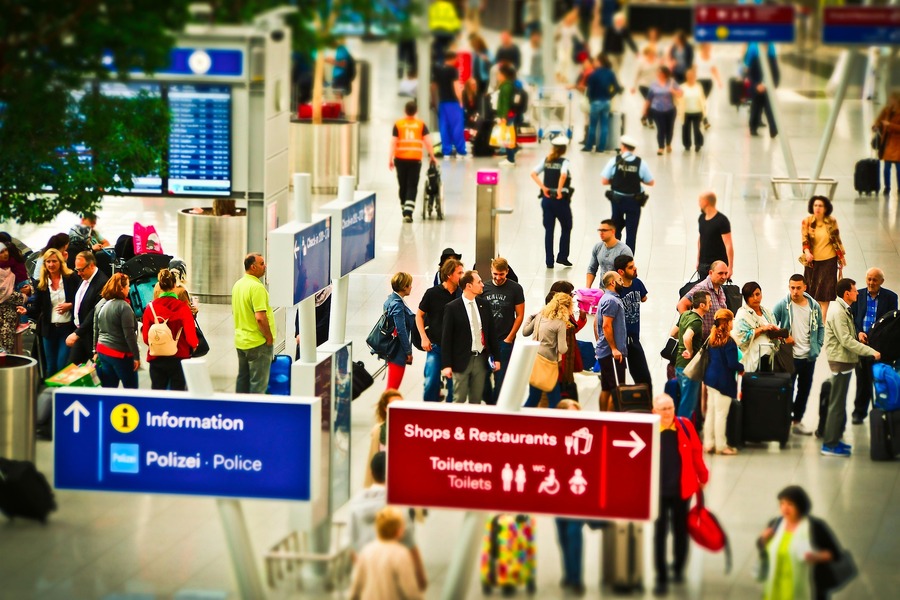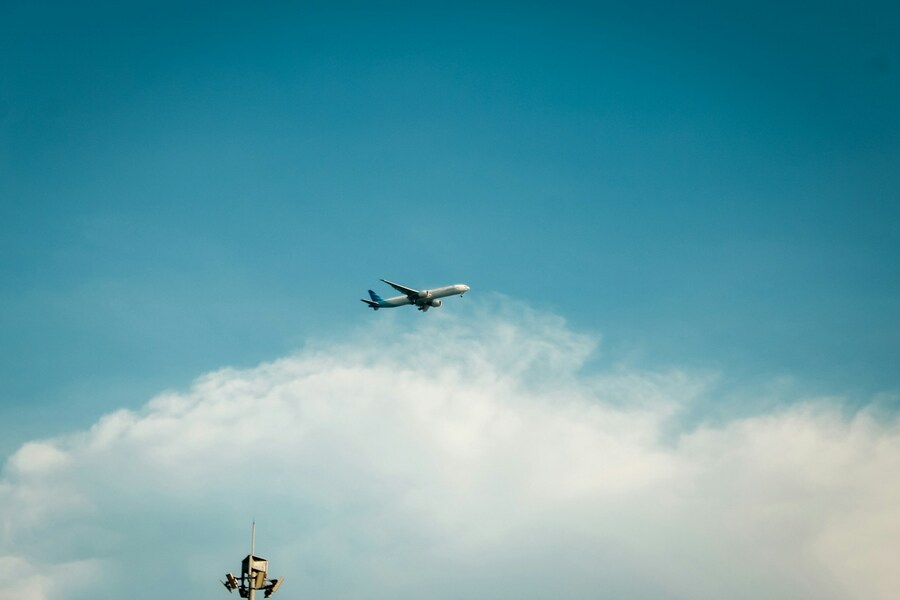The promise of a perfect trip often hinges on a seamless journey to your destination. Yet, in the modern world of air travel, the reality is that flight delays and cancellations aren't just possibilities; they are inevitable occurrences. Whether due to adverse weather, unexpected mechanical issues, or air traffic control snarls, the moment your flight status changes from "On-Time" to "Delayed" or, worse, "Canceled," a wave of stress can set in. However, armed with the right knowledge, you can navigate these turbulent moments with confidence and clarity, minimizing the disruption to your travel plans and ensuring you receive the compensation and support you are entitled to. This travel guide is your essential toolkit for understanding your rights, your airline's responsibilities, and the proactive steps you can take from the moment you book your ticket until you finally reach your destination. So, let's dive right in!
What essential moves can you make before the boarding gate even opens?
Before you hit the airport

Source: pixabay/Pixabay
Preparation is the cornerstone of stress-free travel, and that preparation begins long before you even consider your international airport car parking arrangements. The first and most crucial step is to meticulously check your airline's specific contract of carriage – the legally binding agreement between you and the carrier. While global regulations offer a baseline of protection, this contract details the airline's specific policies on everything from rebooking procedures to baggage handling and the provision of meals or accommodation during extended delays. Take the time to bookmark it or, better yet, download the relevant sections onto your phone.
Next, a critical piece of the puzzle is your booking details. Ensure you have the airline's app downloaded and your confirmation code readily accessible, ideally in a digital wallet or a clearly labeled folder on your phone's home screen. Subscribing to the airline's text or email alerts is paramount; this is often how they communicate schedule changes first, giving you a vital head start. When it comes to leaving your car, pre-booking your spot is a non-negotiable step for smooth travel. Services like ParkingNearAirports.io allow you to compare prices and secure a safe space, often providing significant savings compared to on-the-spot airport parking charges per day, and they even offer handy parking discounts if you book far enough in advance, freeing up mental energy for the rest of your travel logistics. Do your research into the various tiers of airport parking – from remote economy lots to premium valet services – to find the option that best fits your budget and timeline.
Already at the airport?
The moment you see that dreaded status change, your immediate reaction should be strategic, not panicked. The airline gate agent is often overwhelmed during mass cancellations. Your best course of action is two-fold: simultaneously get in line to speak with an agent and call the airline's dedicated customer service number. The phone agent often has broader access to flight availability across the entire network and can rebook you faster than the local gate staff, who are managing hundreds of frustrated travelers.
When you do engage with an agent, be clear, concise, and polite. Have a few potential rebooking options already researched on your phone, including flights on partner airlines. Knowledge is power: if you are departing from or arriving into the European Union, the EU's EC 261 regulation offers significant protection for delays exceeding three hours and for cancellations, often including the right to compensation up to $600 (or equivalent) in addition to care (food and accommodation). In the United States, while federal protection is less comprehensive, most major airlines participate in the Department of Transportation's Customer Service Plan, which mandates certain duties of care. Never accept the first offer if it doesn't meet your needs; politely explain your situation and reference the airline's own Contract of Carriage or the applicable regulation.
The right mindset and info
When a delay turns into a marathon, the ability to find a quiet place to regroup is essential. Don't simply stand by the gate. Modern airports are equipped with a variety of lounges, and access isn't solely reserved for business class passengers or elite frequent flyers. Check if your credit card offers any lounge access benefits, or consider a day pass to a non-airline-specific lounge, such as a Priority Pass facility. A calm environment with complimentary Wi-Fi and power outlets is invaluable for coordinating new plans and staying ahead of the crowd.
Moreover, technology is your ally. Use third-party flight tracking apps or websites that provide real-time updates directly from air traffic control. This information can often tell you the reason for the delay – whether it's a non-compensable weather issue or a compensable mechanical fault – before the airline officially announces it. Knowing the true cause is a powerful tool for negotiating your rebooking or demanding the appropriate duty of care. For instance, if the app shows your inbound aircraft is still stuck at its origin due to a crew issue (which is typically the airline's responsibility), you have a stronger case for demanding a higher quality of accommodation than if the entire airport is shut down by a blizzard. This level of informed calm can be the difference between sleeping on an uncomfortable airport bench and resting in a comfortable hotel bed.
Airline help is just a call away

Source: Raditya Putra Mahardika/Unsplash
As previously mentioned, the best way to interact with an airline during a major disruption is often not in person. When hundreds of passengers are descending on a few gate agents, the phone line, or even better, the airline's social media team, can be your express lane to resolution. Airlines dedicate significant resources to their social media channels, as they want to manage public relations and address issues quickly. A polite, direct message to the airline's official Twitter or Facebook account, stating your flight number, booking reference, and the nature of the disruption, often prompts a response and a solution much faster than waiting on hold for an hour.
If you are forced to wait, remember your rights regarding duty of care. This often includes free meals and refreshments after a certain delay threshold, and for longer delays or overnight cancellations, complimentary accommodation and transport between the airport and the hotel. Don't assume the airline will volunteer this information; you often have to explicitly ask for it. Keep all receipts if you purchase food or necessities, as the airline may be required to reimburse you. Always confirm in advance if the airline will cover your expenses or if you are expected to pay and seek reimbursement later.
Cashing in on frequent flyer miles
If your flight is canceled and you must book a new one, this is where your loyalty status, or even just your accrued frequent flyer miles, can be a massive advantage. Airlines often prioritize rebooking their highest-tier elite members first. Even if you are not an elite member, mentioning your frequent flyer number during the rebooking process can subtly signal to the agent that you are a valuable, returning customer, potentially leading them to offer you a better routing or even a seat upgrade on your new flight.
Moreover, if the cancellation forces you to miss a connection or significantly delays your arrival, check if you can use miles to book a ticket on a rival carrier, especially if your original airline is unable to accommodate you within a reasonable timeframe. Some credit card points and frequent flyer programs offer this flexibility, providing an essential backup plan when all other options fail. Think of your miles not just as a currency for future travel but as an emergency tool for present travel disruption.
Stuck overnight?
The prospect of an unexpected overnight stay can be daunting, but it can be handled efficiently with the right approach. As noted, the airline is typically responsible for providing accommodation and ground transportation if the cancellation is under their control and you are away from your home airport. If the airline is overwhelmed or the delay is caused by an external factor like weather, they may issue a written voucher and instruct you to book your own hotel and seek reimbursement.
If you do need to book a hotel independently, choose a moderate, reasonably priced option. Airlines will rarely reimburse for luxury suites. Photograph the airline's official cancellation notice and the communication instructing you to book your own room. Be sure to get a clear itemized receipt from the hotel. This documentation will be vital for your reimbursement claim. Also, ask the airline about their policy for checked baggage; often, they prefer to hold it securely overnight, but you may need to access essential items, which can be a complex process that you need to factor into your timeline.
Don't forget your travel insurance and receipts

Source: Joao Viegas/Unsplash
The final, and most critical, step after a major disruption is documentation and follow-up. While the airline is responsible for rebooking you and providing duty of care, travel insurance is your comprehensive financial safety net. A robust policy will cover non-reimbursable expenses, such as pre-paid tours, non-refundable hotel stays at your destination that you missed, and a significant portion of the clothing and essentials you had to purchase because your luggage was delayed or lost.
Immediately after the disruption, open a claim with your travel insurance provider. Be thorough. This is where all those receipts, screenshots of flight status boards, emails with the airline, and notes you took about who you spoke to become indispensable. You'll need to show a clear chain of events and prove that the expenses were a direct and unavoidable result of the flight disruption. Filing both an airline compensation claim (where applicable, such as under EC 261) and an insurance claim is the best way to ensure all your losses are recovered. The time and effort spent organizing this documentation will pay off handsomely in the final settlement, turning a stressful disruption into a minor, if irritating, administrative task.
Conclusion
Navigating the choppy waters of flight delays and cancellations is a definitive test of a traveler's mettle, but it's a test you can pass with flying colors. The core principle remains constant: be prepared, be polite, and be persistent. By understanding your rights under various international and national regulations, leveraging technology for real-time information, and knowing the smart ways to use an airline's customer service channels, you can transform a moment of potential travel disaster into a manageable inconvenience. Remember that airlines ultimately want to resolve your issue and get you moving; your informed participation simply speeds up that process and ensures your rights are fully honored. Travel disruptions are a part of the journey, but they don't have to define it. A well-prepared traveler is an unstoppable traveler, ready for whatever the departure board throws their way. May your knowledge be vast, and your standby line be short!






